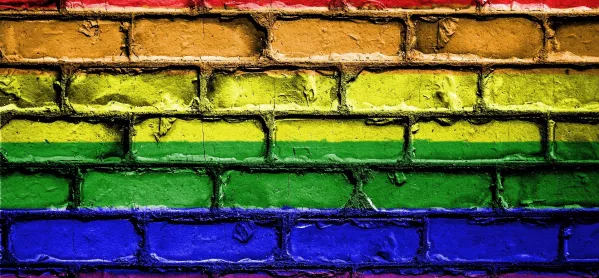As schools in the UK begin to plan how they will teach about the variety of families around the country, not all schools are up to the mark in stamping out even basic LGBT+ issues.
I’ve seen it first-hand.
Phrases like “that’s gay” are still frequently used around school playgrounds, corridors and even in classrooms.
It may seem like a little thing, but the reality is that if such comments are allowed to persist then when schools come to start teaching PSHE and the myriad issues it involves, they will have to waste much of the newly allocated time on explaining that certain language is inappropriate.
A deafening silence
There is a classroom with a confident and brilliant teacher conducting a maths lesson to a middle-attaining group of Year 9s. Suddenly, out of nowhere:
“If I had a gay kid, I would disown it.”
A quiet classroom suddenly becomes even quieter as a group of 13- and 14-year olds stare at the teacher, wondering what is going to happen next.
All students are asked to put their pens down. Nobody is singled out, there is no confrontation.
Speaking coherently and confidently, the teacher describes the difficulties of those in the LGBT+ community. The students hear about fights that have occurred to pull that movement forward.
Students understand that a very small majority of the world will always be against that movement and the world will eventually leave them behind. They learn.
Students understand that anyone who is having issues can come to them or the safeguarding team, and if they know anyone who is struggling, they should tell them they are not alone. The learning resumes.
The instigator of this whole endeavour receives a phone call home, a markdown on the register and the whole thing is then documented and sent to the safeguarding team.
Sounds perfect, right?
But it doesn’t always go that way.
Learning from past mistakes
I have been in extremely similar situations.
The passage above is how I would want to deal with that situation. But that is not how it happened the first time around.
I focused on the perpetrator of the comments. I singled them out and instantly began a situation of Them vs Me.
They weren’t learning. Instead, I had created a difference in opinion, when there wasn’t one. They were wrong. If they were taught something wrong, they can unlearn it.
I was never trained for these situations. In my head, I believed they were so infrequent I would never see them.
Of course, the first, second and third times there were issues in class, it would be dealt with perfectly, I told myself.
Culture change
With new regulations in relationships and sex education coming, it is easy for the Department for Education to assume that every school will begin at the same starting line.
However, with homophobic language still common in schools, there is a lot of work schools must do before it can be implemented successfully.
Leaders in schools must know how much homophobic language is being used in their school. When teachers log issues they have in classrooms, is there any way to note it down as hate language?
This is a simple and effective way for leaders to know if they have an issue in school.
Ask and learn
An easier approach is to just ask. Many schools, including my own, often make use of staff surveys to gain understanding from those on the front line and can be a great way to gain data and use this to adapt.
When I say adapt, I do not mean provide training to teachers. That is a basic. I mean change how your school deals with homophobic language and transphobia.
Create an environment in which pupils and teachers feel confident in being who they are. Promote LGBT History Month in every subject, fly the rainbow flag during Pride Month, and establish an after-school club.
By creating a culture of acceptance in which pupils always learn of the diverse world around them, ignorance is left at the school gates.
Remember, trees don’t tend to grow from seeds that have their roots cut.
Joel Kenyon is a science teacher from Liverpool. He blogs at LGBTteacher.com
